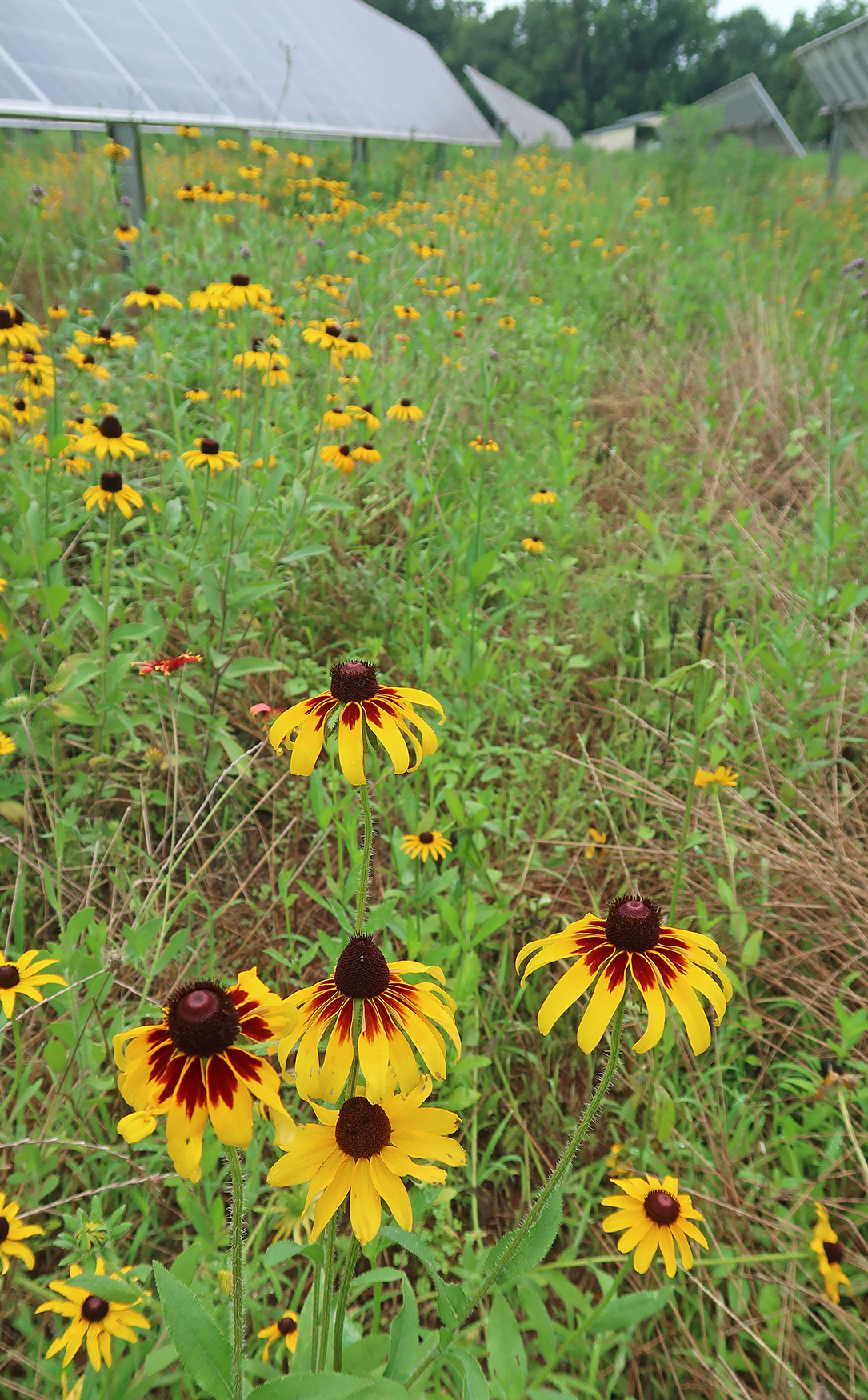Empowering Biodiversity on Solar Farms
Solar farms are embedded in the agricultural landscape. In addition to electrical power, they can also be used as refuge habitats for pollinators and other beneficial insects. Wildflowers can provide floral provisioning for native pollinating insects. A project by UGA horticulturists focuses on finding the best performing plants, and formulating guidelines, including economics and management of the plant-technology enterprise, for cost-effective, long-term success. In collaboration with private solar companies and two federal agencies, UGA scientists established a research site at the 25-acre Carter solar farm facility in Plains, Georgia. They are testing wildflower species mixes under standard bed preparation methods and recommended maintenance regimes. They are analyzing inputs and measuring habitat establishment and success over several seasons. Species were selected for adaptability to southeastern growing conditions, bloom period, growth habit, annual and perennial life cycle, and high floral provisioning. Data from the year immediately following seeding showed high emergence of Indian blanketflower, black- and brown-eyed Susan and partridge pea. These species also showed great potential for establishing from seed and self-sustaining under the solar panels.
Read the full impact statement
Related Impact for Sustainability, Conservation and the Environment
- Air Quality and Health Risks During the Pandemic 2020
- Crop Ecosystems in the Southeast 2020
- Declining flows on Georgia Floodplain Rivers 2020
- Estimating Economic Losses from COVID for Poultry Industry 2020
- Evaluations of Auxin Nozzles for Irrigation 2020
- Improving alfalfa cultivars 2020
- Increasing Genetic Resistance 2020
- Irrigation Recommendations for Peach 2020
- Power System Reliability 2020
- Recycling Plastic Waste in the Green Industry 2020
- Soil Organic Matter Dynamics 2020
- Sustainable Agriculture Research and Education Program Assessment 2020
- Watershed Restoration 2020
- Well Water Quality 2020

